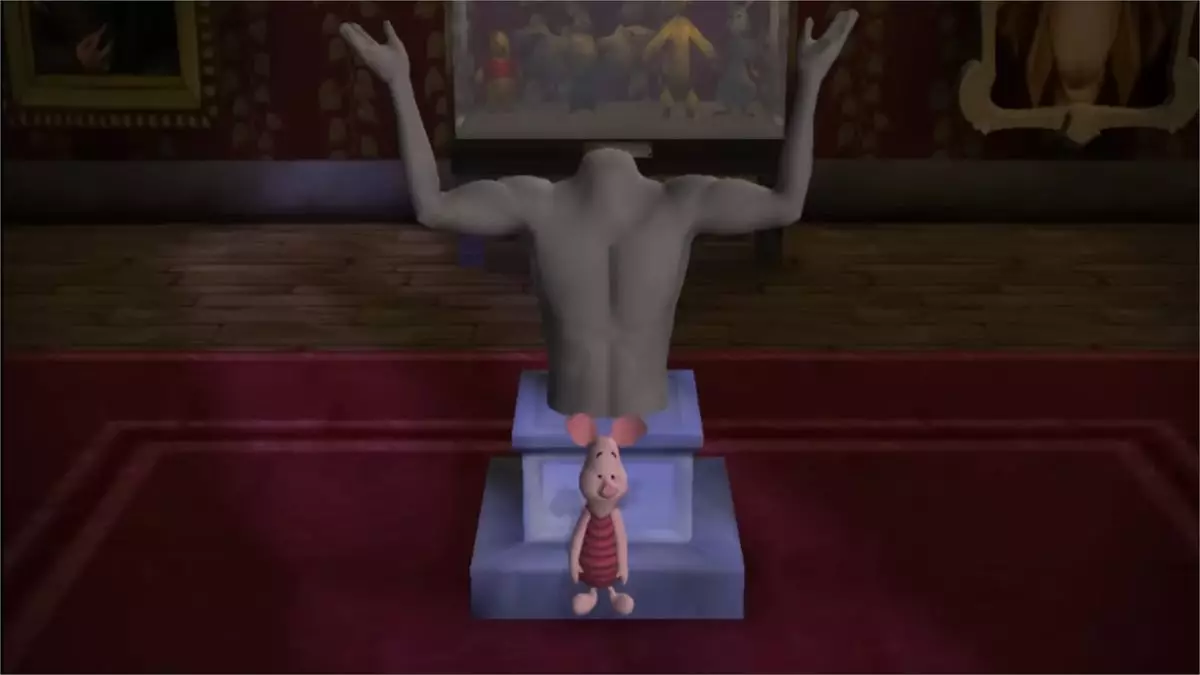In the vast landscape of video gaming, it’s not uncommon for titles to emerge from obscurity and capture public attention for various reasons. Recently, a particular game featuring an unexpected hero—Piglet from the beloved Winnie the Pooh series—has captured the imagination of players with its chilling yet playful narrative. Dubbed “Piglet’s Big Game,” this title stands out not just for its whimsical character but for its audacious incorporation of horror elements reminiscent of iconic franchises like Resident Evil and Silent Hill. The unexpected connection between the nostalgic childhood character and a horror-based aesthetic has sparked viral interest on social media platforms.
The creative minds behind “Piglet’s Big Game” hail from Doki Denki, a studio led by director Pascal Stradella. Stradella has been vocal about the unique approach they took while developing the game. Unlike conventional horror games aimed at adults, this title targets a younger audience, positioning itself as a horror comedy intended to introduce children to a range of emotions. Stradella emphasizes that the primary goal isn’t to induce outright terror but rather to foster a sense of unease that keeps young players engaged without overwhelming them. This careful balance is achieved through a mix of unsettling auditory cues and tension-building scenarios, presenting a novel twist on the traditional gaming experience intended for children.
Unlike standard gaming mechanics, “Piglet’s Big Game” does away with a traditional health bar in favor of a more nuanced ‘state’ bar. This innovative feature tracks Piglet’s emotional journey through various ‘states’—Normal, Worried, and Panic—reflecting the character’s psychological responses to in-game events. Such a mechanism not only invites players to engage more deeply with Piglet’s emotional landscape but also encourages them to seek out ‘life fountains’ for restoration, thereby incorporating elements of both challenge and relief. Through this design, the developers succeed in crafting a gameplay experience that resonates with players while cleverly intertwining humor and horror.
The revival of “Piglet’s Big Game” has led to a remarkable phenomenon within gaming circles, transforming it from a largely overlooked title into a sought-after commodity. In recent weeks, copies of the game have reportedly sold for exorbitant prices, reflective of a growing appetite for nostalgia in the gaming community. This surge in interest is not merely a fleeting trend; it underscores a deeper yearning for reimagined childhood memories couched in innovative gameplay mechanics. It demonstrates how older titles can be revitalized, gaining a new audience captivated by both their nostalgic value and fresh interpretations.
As “Piglet’s Big Game” continues to garner attention, it raises pertinent questions about the future of children’s gaming. Could we see more titles that blend lightheartedness with an underlying tension? What potential lies in creating content that effectively engages emotional responses in young gamers? As developers push the boundaries of traditional gaming genres, the fascinating blend of comedy and horror in “Piglet’s Big Game” might just be the beginning of a new era for children’s entertainment in the gaming industry. The landscape is shifting, and as we watch this unique venture unfold, one can’t help but feel intrigued about what lies ahead.

